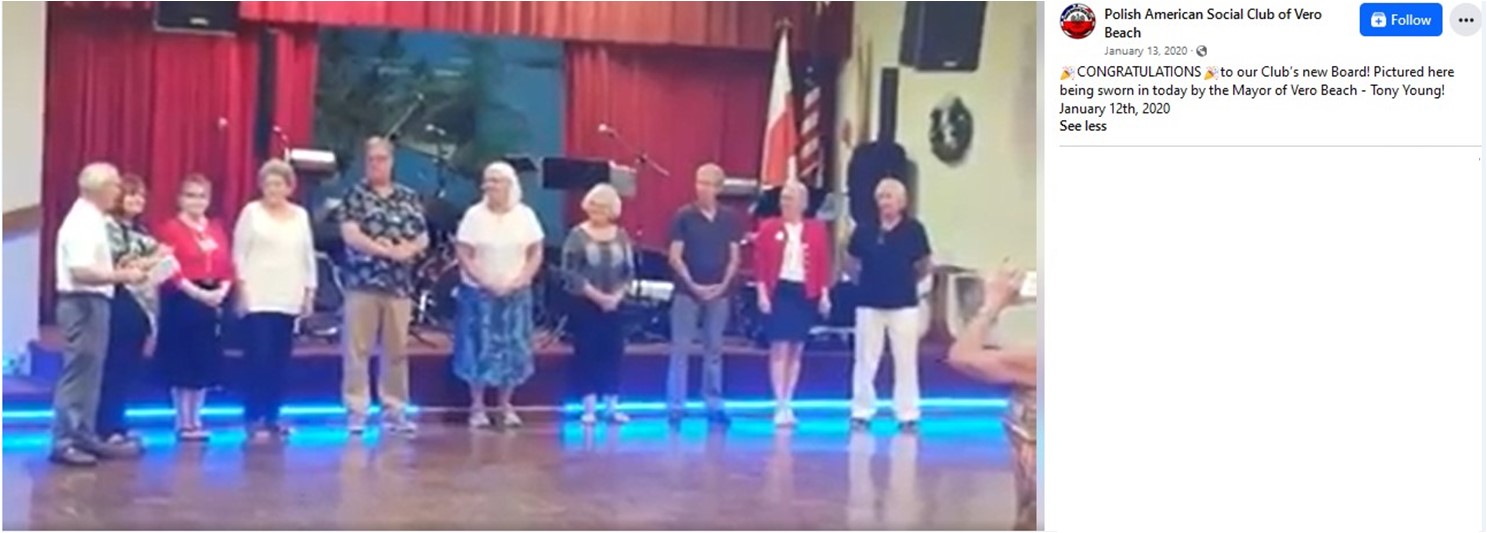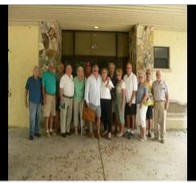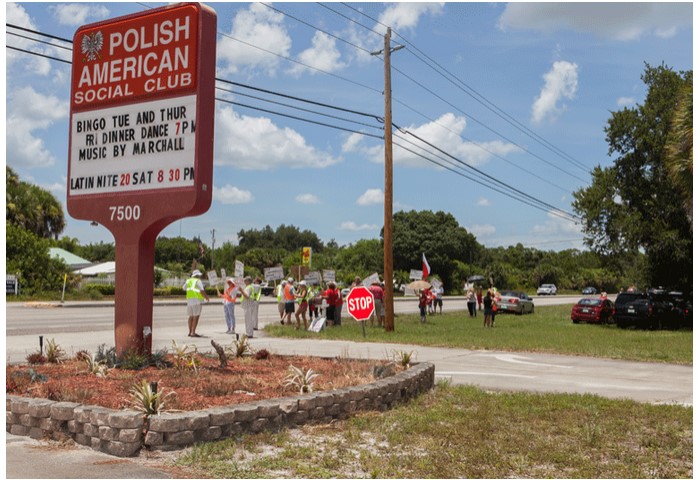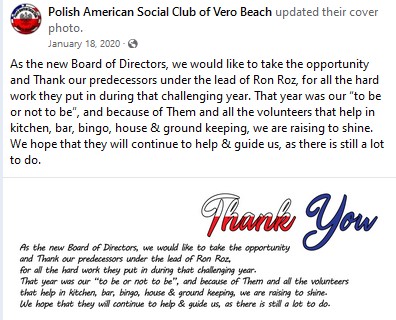




Polish Americans to finally get their Social Club back
Written by: Michelle Genz February 07, 2019
An insurgent group that seized control of Vero Beach’s longtime Polish-American Social Club three years ago – turning it into the Vero Beach Social Club – has been ordered to vacate the club’s building within 20 days, return all property to the Polish faction’s member’s, and pay $27,864 in damages.
In a ruling issued Jan. 22, Circuit Judge Janet Croom also invalidated all legal documents related to the takeover, including deeds and bills of sale.
Croom’s decision concludes a three-year legal battle over the clubhouse on U.S. 1 and an estimated $1.25 million in assets once set aside to promote the culture and heritage of the Eastern European nation.
Following years of disagreement over the club’s direction, the board of directors then in place formed a new corporation – the Vero Beach Social Club – in 2015. It then transferred the Polish-American Club’s assets to the new nonprofit and, without a vote by its membership, dissolved the original corporation.
Attorneys for the Polish faction argued this was unfair – that while the club’s bylaws left financial and business affairs to the board, major decisions were “subject to the approval of regular membership,” including any expenditures over $499.
Croom’s final ruling echoed the decision rendered by Circuit Judge Paul Kanarek in February 2018. Kanarek found that the actions by the insurgent board of directors that dissolved the old club and transferred its assets to the new Vero Beach Social Club violated the original club’s articles of incorporation.
“The articles are clear: the dissolution of this corporation required the vote of the general membership and approval of the general membership,” Kanarek said at the time. “If they didn’t have authority to dissolve the corporation, they didn’t have authority to distribute the property.”
Members of the Polish-American Social Club filed their first civil complaint in October 2015, not long after the board dissolved their club.
In the decade leading up to that, membership and revenue from social events like dinners and dances had been shrinking. There were some 750 participants in 2007 but only 325 by 2015. From 2014 to 2015 alone, revenue dropped nearly $40,000.
The board of directors thought it could grow the club by expanding cultural offerings. Polka dances turned into Salsa night, and the pierogies and potato pancakes were replaced by meat loaf and lasagna.
A newsletter boasted, “You don’t have to be Polish to join this club.”
Polish members resented the change and meetings became so tense police had to be called. The club was picketed and there were threats of violence.
Jerry Cygler, who served as the Polish group’s president for the past three years, said members of the club – which continued to meet regularly at another location while the legal dispute dragged on – are pleased by Croom’s decision.
“Everyone is very happy and looking forward to the future,” Cygler said. “We have a lot of work to do, but we’re ready.”
